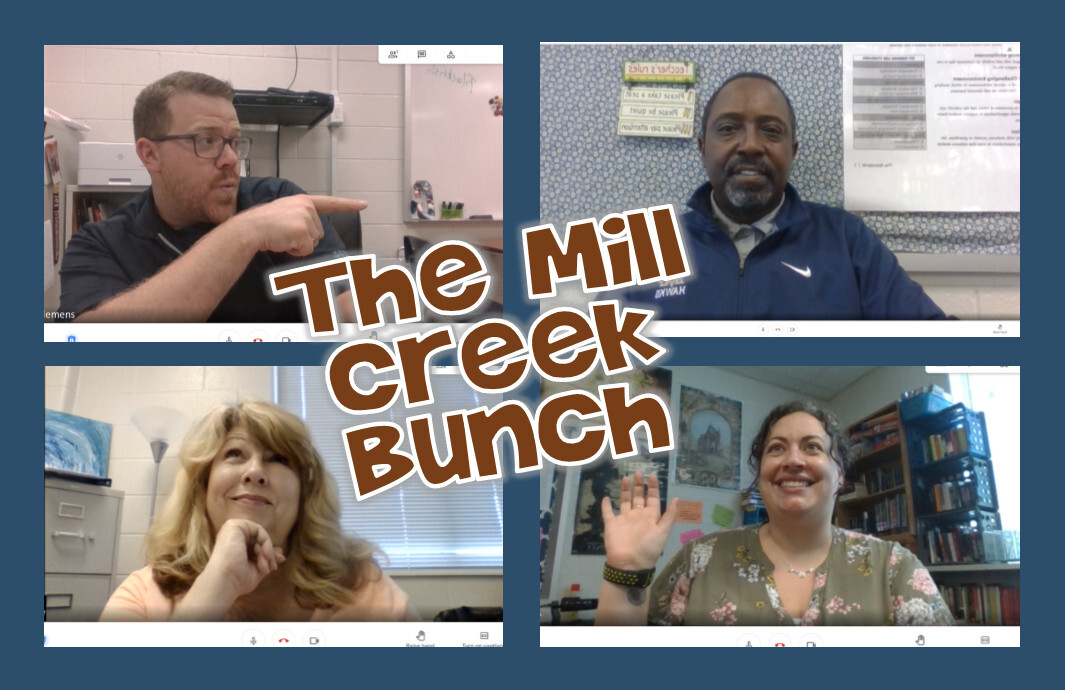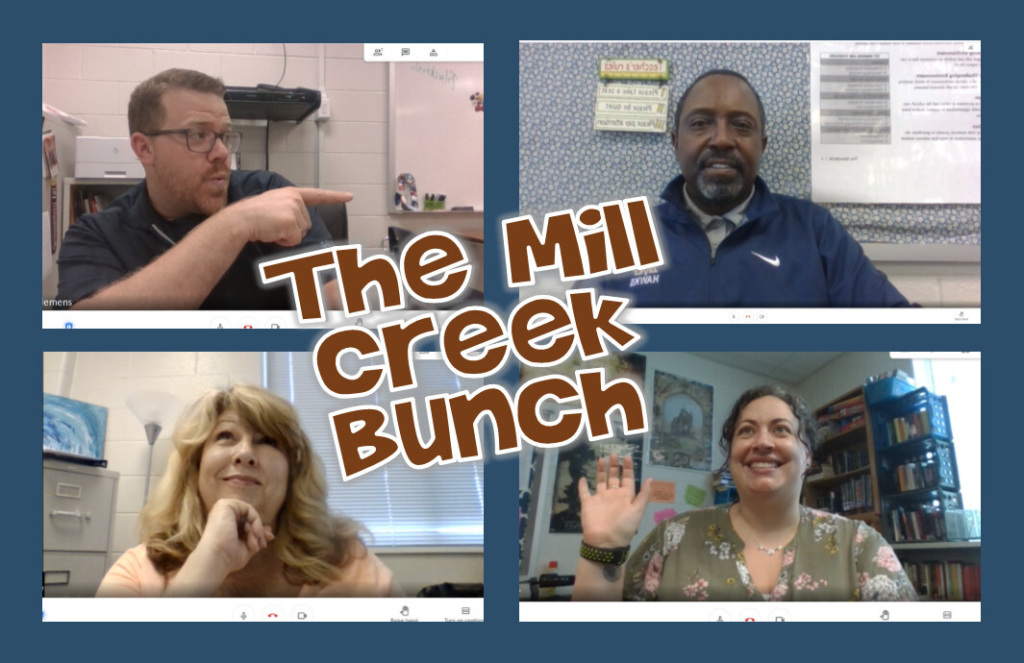
Pre-pandemic NewsLitCamp planted seed for team teaching

Talk about good timing. In early 2020, Erin Wilder encouraged her fellow high school English teachers to hop in the car and head from Hoschton, Georgia, to Columbia, South Carolina, for a NewsLitCamp®. Wilder was certain a drive of a few hours would prove valuable to her colleagues — Warren Clemens, Joe Jenifer and Ramona Avery.
We all know what happened soon after. By early spring, the pandemic forced schools to close for the remainder of the school year and begin in the fall of 2020 with distance learning or hybrid models of teaching. To keep students engaged, educators have had to get creative and collaborate more than ever.
That’s where Wilder’s expertise with NLP’s Checkology® came in. Her team was new to the e-learning platform, so her experience was invaluable for building a media literacy curriculum in an asynchronous learning environment. “Because I had experience with it, I had a plan from the outset,” Wilder says.
Her colleagues were glad to have that guidance. As team leader, Wilder organized content and sequenced lessons to achieve learning outcomes.
“Erin was using Checkology a lot. I hadn’t pulled the trigger until this year, and I needed to learn how to use it in the classroom,” Clemens says.
The NewsLitCamp was worth the drive, says Jenifer. It gave him insight on how to approach the topic. “That experience really helped me to better implement the media literacy curriculum and use Checkology,” he says.
The curriculum is part of a required class for about 600 Mill Creek High School seniors. “We want them to be literate citizens,” Wilder says. “We want them to understand how these skills transfer when they go out into the world.”
Making connections to their lives
The team taught the Checkology lessons “InfoZones,” “Understanding Bias,” “Misinformation,” “Introduction to Algorithms” and “Conspiratorial Thinking.”
“The [lesson] videos are fun and allow such great discussions,” Clemens says.
The teachers supplemented lessons with material from The Sift® newsletter, NLP educator resources and other content. Studying algorithms and branded content (advertising disguised as news) allowed them to demonstrate connections between class material and what was happening in students’ newsfeeds. “I’d pull a social media account up and say, ‘Look what they’re showing me and what they are suggesting for me,’” Wilder says. “We think it’s random garbage that shows up but it’s not random. They can see that pattern is there on purpose and realize, ‘This is what the machine thinks of me.’”
The lessons led to students to learning how to identify whether a piece of content was credible and determining how it had been manipulated. “They’re able to see through the façade of what is being pushed out,” Wilder says.
When teaching “Understanding Bias,” Clemens had students choose a current event and find related news articles that represented different partisan opinions. That lesson also helped one of Jenifer’s students, whose political opinions were shifting away from his father’s, speak openly with him. “It allowed him to intelligently have those discussions with his dad,” he says, noting that “students have to make their own choices, have their own voices.”
And a watershed moment for Jenifer and his students came when they began looking at consumption of media from the perspective of a balanced diet. “You need a balanced diet to make healthy choices. When you don’t have that, it makes for unhealthy choices and unhealthy decisions,” he says.
Lessons learned
Based on the team’s experiences this spring, they have some advice for those diving into news literacy education next fall:
- Don’t go it alone; teach as part of a team.
- Don’t be afraid to take risks and make mistakes.
- Challenge students intellectually and encourage them to think in different ways.
- Familiarize yourself with all material available through NLP and other resources.
- Use examples from daily life to engage students.
Clearly, their pre-pandemic road trip back in 2020 paid off in ways the teaching colleagues couldn’t have predicted, and they’ll be using the lessons learned in the school year ahead.